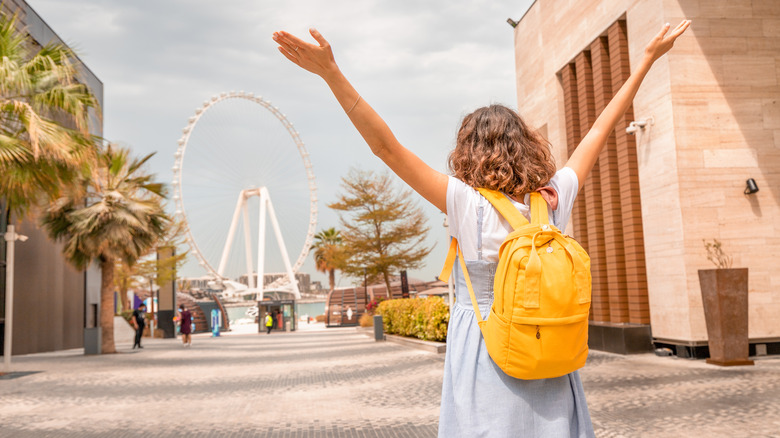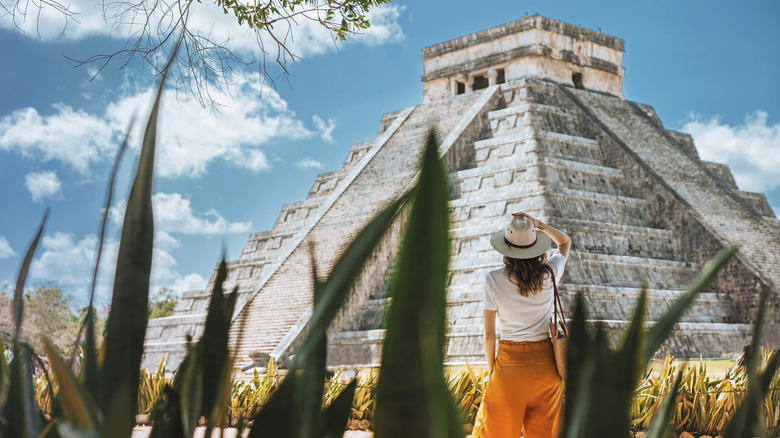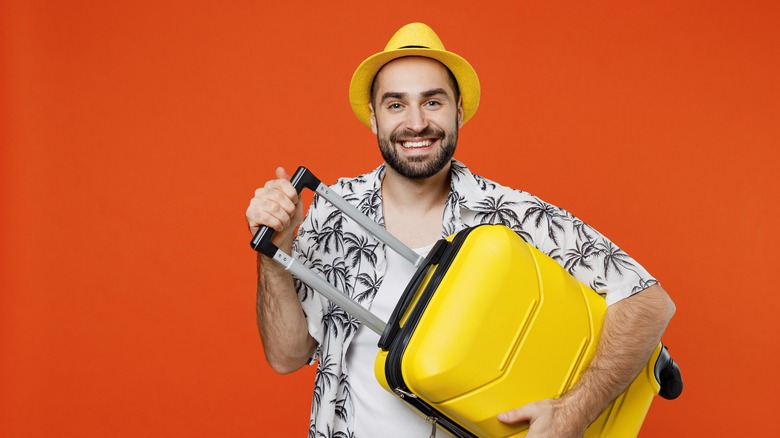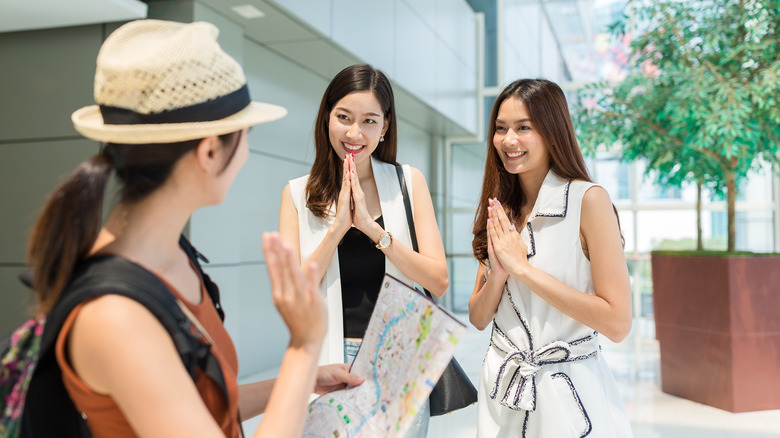Why You Should Stop Worrying About Looking Like A Tourist
Fairly or not, the term "tourist" evokes images of bumbling, perputually lost people wearing socks with sandals, passport lanyards under half-buttoned Hawaiian shirts, and a look that's either confused or awe-struck. However, this image of a "tourist" is more of a bad caricature than a reality. Most people who travel simply look like ordinary people walking around.
If we can't typically identify other tourists (barring maybe luggage or backpacks), then why do we sometimes worry about looking like a tourist ourselves? More importantly, why do we care if we do look like a tourist? After all, when traveling to a new land, we are tourists.
In most cases, however, a fear of looking like a tourist goes deeper than fashion concerns. You can always leave that passport lanyard in your hotel safe (which you definitely should for safety reasons). And maybe safety does play a role. Scam artists can prey on naïve tourists, which is a reasonable motivation for "blending in." But when safety or adhering to cultural norms aren't considerations, why is appearing like a tourist a bad thing? Spoiler: It's not.
Defining the term tourist
The actual definition of a tourist is "someone who visits a place for pleasure and interest." Sound familiar? A tourist is simply a traveler. Snarkier (or maybe more self-conscious?) travelers sometimes create differentiations between tourists, long-term travelers, digital nomads, etc., but creating some kind of "traveler hierarchy" seems a bit childish. While there may be a difference between a cruise ship day-tripper and someone who's explored a place for months, both visitors are (by definition) tourists to a new land.
The negative connotations of tourists often stem from bad behavior, not questionable fashion sense or sightseeing itineraries of popular landmarks. Recently, the problem of overtourism and bad tourist behavior has probably contributed to responsible travelers rebuking the "tourist" designation. We've all seen stories of people illegally climbing the steps of ancient Mayan temples or swimming in historical Roman fountains.
However, their behavior shouldn't make you self-conscious about traveling or looking like a tourist. First, worrying means the snobs win, and second, most locals will judge you solely by your behavior. If you're a respectful, mindful, and sustainable travel-minded visitor, most locals will be happy to welcome and assist you.
Overcoming travel anxiety
If we peel the onion a little, worrying about looking like a tourist is just a specific situation in which we fear being judged. We may fear being judged in the mornings by our next-door neighbors, too, but traveling to a foreign land may magnify a fear of social judgment. And experiencing anxiety while traveling is common. After all, you're visiting an unfamiliar place. But there's no reason to add irrational fears to an already unique situation. If you struggle with generalized anxiety, remember to utilize your at-home coping skills and treatments on the road, whether that's medication, meditation, journaling, or whatever your cup of nerve-calming tea may be.
Often, the act of traveling also helps to alleviate travel-related anxiety. Many people find that the world just isn't as scary as we're often led to believe. And this includes finding out that locals don't typically care about your visitor status. As long as you're respectful while visiting their home, then wave your freak flag. Sandals and socks are super comfortable.
When blending in helps
While there's absolutely nothing wrong with looking like you're traveling, there are some instances where "blending in" could be a good idea. First, as we mentioned before, tourists can attract unwanted attention from scam artists and pickpockets. If you simply avoid dicier areas and leave valuables at home while sightseeing, you can usually avoid any unfortunate incidents.
Also, you'll want to "blend in" when it's culturally appropriate to do so. This could mean wearing a headscarf when visiting a religious site or modifying your behavior to adhere to local customs. In these instances, this "blending in" is an act of respectful tourism and not a consequence of irrational fear.
Overall, it's hard to define what a tourist actually looks like. Fashion taste aside, if that person is respectful and mindful while they travel, almost everyone will think that person looks just fine. They may even ask where they're from.



